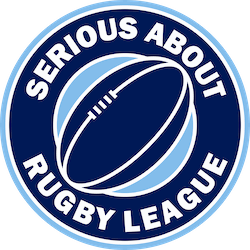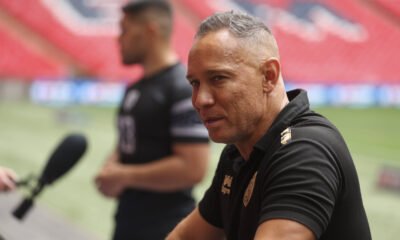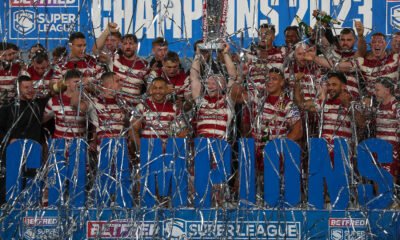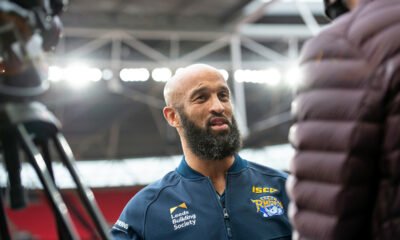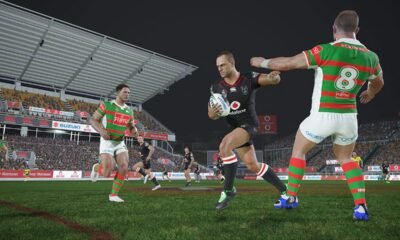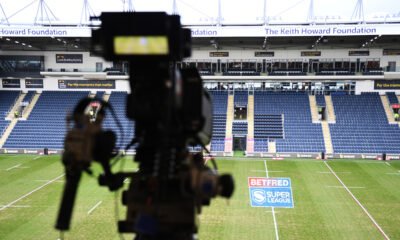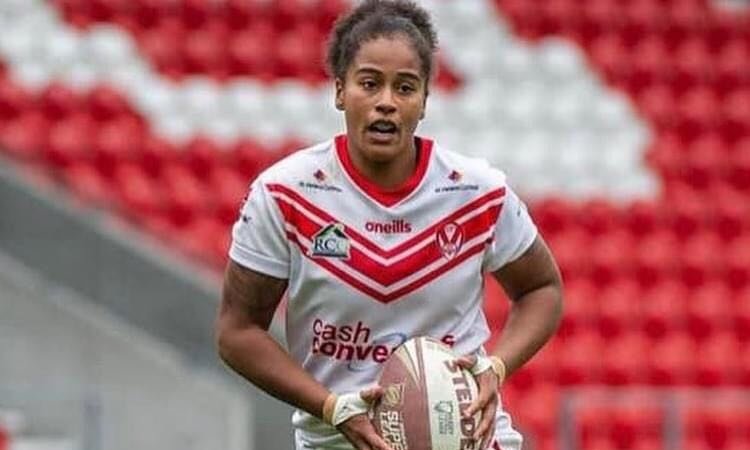
Rugby league has its fair share of interesting back stories but few come close to that of St Helens Women’s star Chantelle Crowl.
Born in Toronto, Chantelle’s Jamaican father and British mother moved their family from Canada over to England when she was young.
It was obvious from the outset ‘Channy’ had something when it came to sport; whether it was basketball, hockey or anything that involved a bit of competition, she wanted to get involved.
Her path into rugby league came about in an unusual manner. The move over to England of course brought about new friends, one of whom was a young girl called Alex.
Chantelle was aware she was ‘different’ to the rest of the girls in her class at school and Alex helped her through an uncertain time.
As their friendship grew stronger, she was able to meet Alex’s father – none other than Widnes and New Zealand forward Esene Faimalo.
Esene introduced Chantelle to the sport she loves today and at the age of seven she joined her first local junior club.
From there her game went from strength to strength and through her youth and teenage years, her talent and ability was undeniable.
Crowl appeared for Widnes Moorfield, West Bank, Widnes Vikings, Crosfields and Thatto Heath, becoming one of the best forwards in the game.
The Women’s Super League then took off and so did Channy; she quickly became a superstar for St Helens with her form leading to an England call-up and a place in the World Cup squad.
Her consistency, dedication and discipline remain second to none and on the face of it everything looks rosy, but Crowl has faced unavoidable challenges of prejudice along the way.
During one of her first games for Saints in 2018, she was on the receiving end of racial abuse, an experience that caused her to take action, but not in the way you would expect.
“I have a Gorilla carrying a rugby ball tattooed on my arm,” Crowl explained. “I’m asked about it often and the back story is really upsetting but it also provides a reminder to myself of how far I have come.
“Whilst playing against Leeds for St Helens, my mother was stood in the crowd and a spectator shouted ‘get that gorilla off!’
“My mother remained calm, she will not let any ignorant person ruin my dreams in rugby league.
“I made sure I had that tattooed on my arm, it’s a symbol of strength in adversity. One racist comment will never deter me from my dreams that one day we can all live in harmony as one.”
October saw the UK celebrate Black History Month, a time dedicated to recognising the achievements and constant positive influence of black people all over the world.
This is a period close to Chantelle’s heart and she believes more education on all cultures is the way forward to a more inclusive society.
Chantelle’s attitude is admirable and inspirational in equal measures. Her ability to see the bigger picture is something rugby league is lacking on and off the pitch.
Going into detail on how we can encourage people from all walks of life to get involved in the sport, Crowl believes next year’s World Cup could provide the ideal opportunity for the women’s game to move forward.
“You see each culture is different, my culture isn’t so much muddy fields and physicality of rugby and sometimes being hurt, we tend to be track runners or involved in athletics. It’s what we know and are encouraged to do in schools.
“I’ve seen rugby being promoted and played in Jamaica and that is wonderful to see. I suppose in time we will have many Jamaican players all over the world, it’s all about awareness and promoting every sport in schools.
“We have a few women from different backgrounds within the England performance squad – Kelsey Gentles Jamaican heritage, Tara Moxon Papa New Guinea, Roxy Murdoch-Masala New Zealand and not forgetting our coach Craig Richards.
“I feel we are lucky to have Craig, not only for his coaching ability but also his empathy and strength within women’s sport.
“Women’s sport in general isn’t promoted enough so I can understand the difficulties of recruiting women from all backgrounds and ethnicities.
“It’s a slow process and I’m sure with the World Cup so close, more young girls and women will take to the sport from the positivity and promotion of such a major event being held in our country.”
